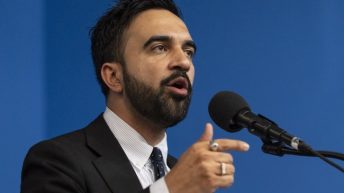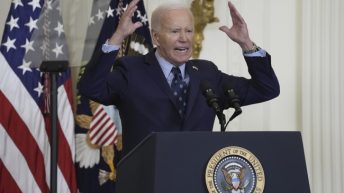President Donald Trump has pulled the nomination of Joel Rayburn, who served as an envoy to Syria during Mr. Trump’s first White House term, for the post of assistant secretary of state for Near Eastern affairs, according to a source familiar with the matter. This decision shifts momentum in the State Department staffing process and raises questions about policy direction and Senate timing as the administration manages pressing regional challenges.
The withdrawal of Joel Rayburn’s nomination surprised some in foreign policy circles because his résumé includes extensive experience on Syria and the broader Levant. Rayburn served in the previous Trump administration and handled complex dossiers involving state and nonstate actors across Syria, Iraq, and adjacent regions. His background had made him a logical candidate to help re-shape U.S. engagement in the Middle East under the current administration’s priorities.
For Republicans who favor a firm, pragmatic approach to the region, Rayburn’s track record suggested an ability to blend military and diplomatic tools. Advocates saw him as someone who could push back against Iranian influence while preserving partnerships with local actors that contributed to counterterrorism gains. The nomination’s withdrawal leaves those who wanted continuity and a hawkish posture wondering what comes next.
The State Department slot for Near Eastern affairs is vital because it sets policy direction across a volatile neighborhood that includes Syria, Lebanon, Israel, the Palestinian territories, Iraq, and the Gulf states. Whoever fills that role will influence arms transfers, sanctions, and diplomatic recognition choices that have long-term implications. Republicans in Congress will watch closely for a nominee who matches the administration’s emphasis on U.S. interests and security commitments.
Timing matters. The Senate calendar is crowded, and a withdrawn nomination can stall other appointments and disrupt diplomatic momentum. Senators on both sides routinely use confirmation processes to extract policy commitments or press for oversight, so a change at the top of the Near Eastern affairs bureau can trigger hearings and extended debate. That dynamic can slow responses to crises on the ground, from hostage disputes to sudden escalations between regional adversaries.
Domestic politics also play into this. The White House balances competing priorities when advancing nominees, including intra-administration rivalries and the desire to avoid bruising confirmation fights. A withdrawn nomination can reflect strategic retreat, compromise to secure a smoother path for other priorities, or the result of new information that alters risk calculations. For Republican strategists, maintaining a coherent message about regional policy remains crucial while the administration reshuffles its personnel choices.
The Syria portfolio itself remains among the thorniest components of the Near Eastern affairs brief. U.S. policy there has ranged from robust counterterrorism operations to humanitarian relief efforts, often conducted alongside partners who have diverging goals. Any new nominee will have to navigate the legacy of previous administrations, local power struggles, and the presence of Iranian-backed militias and Russian influence that complicate even modest policy goals.
Observers will be watching how the administration replaces Rayburn, and whether the next candidate will be seen as more of a diplomat or more of a security hawk. Republicans who prioritize deterrence and the rollback of malign actors will press for experience in coordinating military and economic pressure. At the same time, others will underscore the need for diplomatic channels to manage escalation and protect U.S. troops and partners in the region.
Senate Republicans can influence the outcome by making their priorities clear during the vetting and confirmation stages. That includes outlining standards for nominees on issues such as relations with Israel, dealing with Iran’s regional proxies, and cooperation with partners who helped the U.S. counter ISIS. The party’s stance will shape not only the immediate nomination but also the broader direction of Middle East policy under the current administration.
Meanwhile, foreign counterparts and regional allies will interpret the withdrawal as a signal about U.S. consistency and follow-through. Close partners expect clarity and steady leadership from the State Department, while adversaries look for openings to exploit perceived disarray. Filling this vacancy promptly with a nominee who can secure Senate confirmation will be essential to reassure allies and deter opportunistic moves by rivals.
The path forward will likely involve a new nominee whose credentials fit the administration’s priorities and who can clear the Senate gauntlet without triggering protracted controversy. For Republicans focused on a tough, interest-driven approach to the region, the next pick will be an opportunity to reinforce a policy of firm but pragmatic engagement. The coming weeks should reveal whether the administration aims for continuity or a shift in posture as it retools its foreign policy team.




Add comment